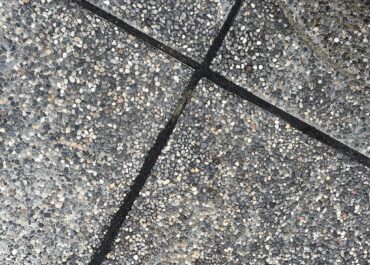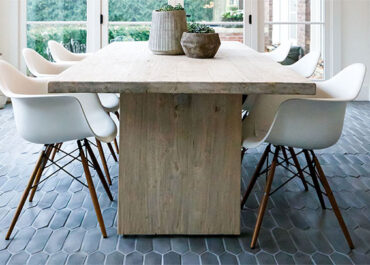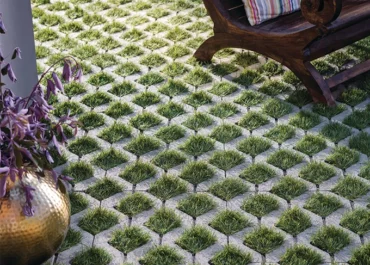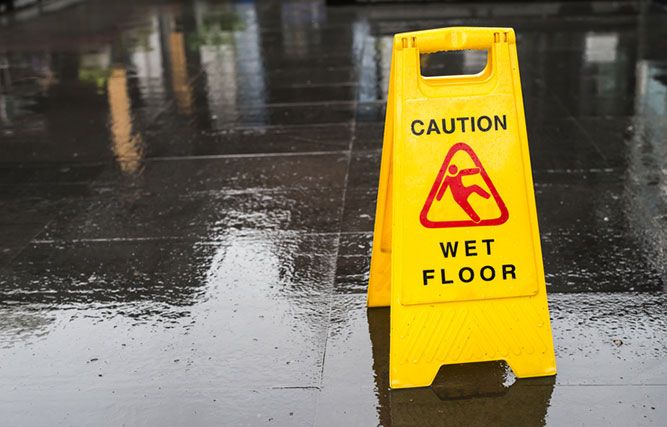
Porcelain pavers are, without a doubt, a growing trend. When compared to more classical choices of materials, they present a surprising amount of advantages. What many homeowners want to know is if, amongst these advantages, is if porcelain pavers are slippery or not.
The hardscape industry has been taken abashed by the many advantages of porcelain pavers. Advantages so impactful in fact that they have changed the game completely. Other materials are finding it hard to compete against porcelain from a cost benefit and long-term perspective.
But what makes porcelain pavers so good? What is the magic behind it, and is a non-slippery effect included in that magic?
That’s what we are aiming to answer in this article and provide you with a better understanding of the quality that porcelain provides.
Are Porcelain Pavers Slippery?
Due to its fabrication process, porcelain ends up being a very dense and non-porous material. For that reason, it doesn’t absorb water, or any liquids for that matter.
Also, porcelain can have different textures. Some of them are very glossy and not recommended if you want a non-slippery surface, while others can have a finish designed to be non-slippery.
When installed with proper slope and drainage, water will immediately bounce out of its surface, which creates a non-slippery effect. So the answer is no, porcelain pavers are not slippery.
That makes them a perfect choice for pool patios and surrounds, for example.
Aside from the non-slippery surface, porcelain pavers have several more advantages that we are going to talk about moving ahead. And to better understand all this advantages, let’s start by explaining how porcelain is made.
What is Porcelain?
Porcelain is, at its core, a form of ceramic. Any material that is created by being “cooked” at high temperatures, can be considered being ceramic, like terracotta and brick.
What makes porcelain special however, is the unique mixture of elements from which it is created. Some of these elements are common in other forms of ceramic, like sand and clay, but what makes porcelain special is the use of mullite.
Mullite, also known as porcelainite, is a rare silicate mineral that undergoes through a process called vitrification when submitted to high temperatures. In essence, it becomes a very pure and resistant form of glass.
When added to the mixture of elements during the fabrication of the porcelain and is cooked together, reaching up to 1230℃, it binds everything together and creates a material with unparalleled sturdiness.
Porcelain Pavers are a Good Investment
There are many reasons why the use of porcelain in hardscape is growing more and more in recent years.
Hardscape can sometimes be a costly business. A good outdoor design can add tremendous value to a property, and with that perspective, hardscape becomes more of an investment than a simple renovation.
And as in any investment, you want the best possible cost benefit that will stay relevant for the maximum possible amount of time. And in that regard, porcelain pavers are probably your best choice of investment.
Porcelain pavers have, by far, the best cost benefit in the market. Mainly because they require way less expenses with maintenance. But let’s expand on some advantages of porcelain pavers.
Advantages of Porcelain
- Sealing is not Required
Due to its fabrication process, porcelain has a form of “natural seal” to it, formed by the vitrification process. Not having to spend on sealing every year is already a huge advantage and an aspect where you save a lot of money. - Resistant to Common Enemies of Pavers
The dark, humid, full of organic material, grout lines between the pavers are a perfect environment for moss and mold to grow. However, with porcelain pavers this is not a problem. Being such a dense and non-porous material, both moss has a hard time seeping into the surface and making it at proper home. - Easy to Clean
Don’t underestimate the importance of that. Cleaning pavers, especially if you can’t keep a regular cleaning schedule, can be a problem sometimes. Mostly because most forms of pavers are porous and, even when sealed, they can absorb spills and stains. And again the natural sealing of porcelain makes a difference.
Porcelain pavers are extremely easy to clean. A simple mild outdoors cleaning products and a pressure washer already do the trick. Besides, even if you can’t clean it every week, you won’t have many problems, since it won’t stain. - Resistant to Weather
Weather conditions, especially freeze-thaw cycles, can really damage a paver installation. Porcelain is really dense, so it finds it really difficult to expand in hot weather and retract in the cold. That makes it virtually immune to free-thaw cycles and a perfect material for regions with extreme weather.
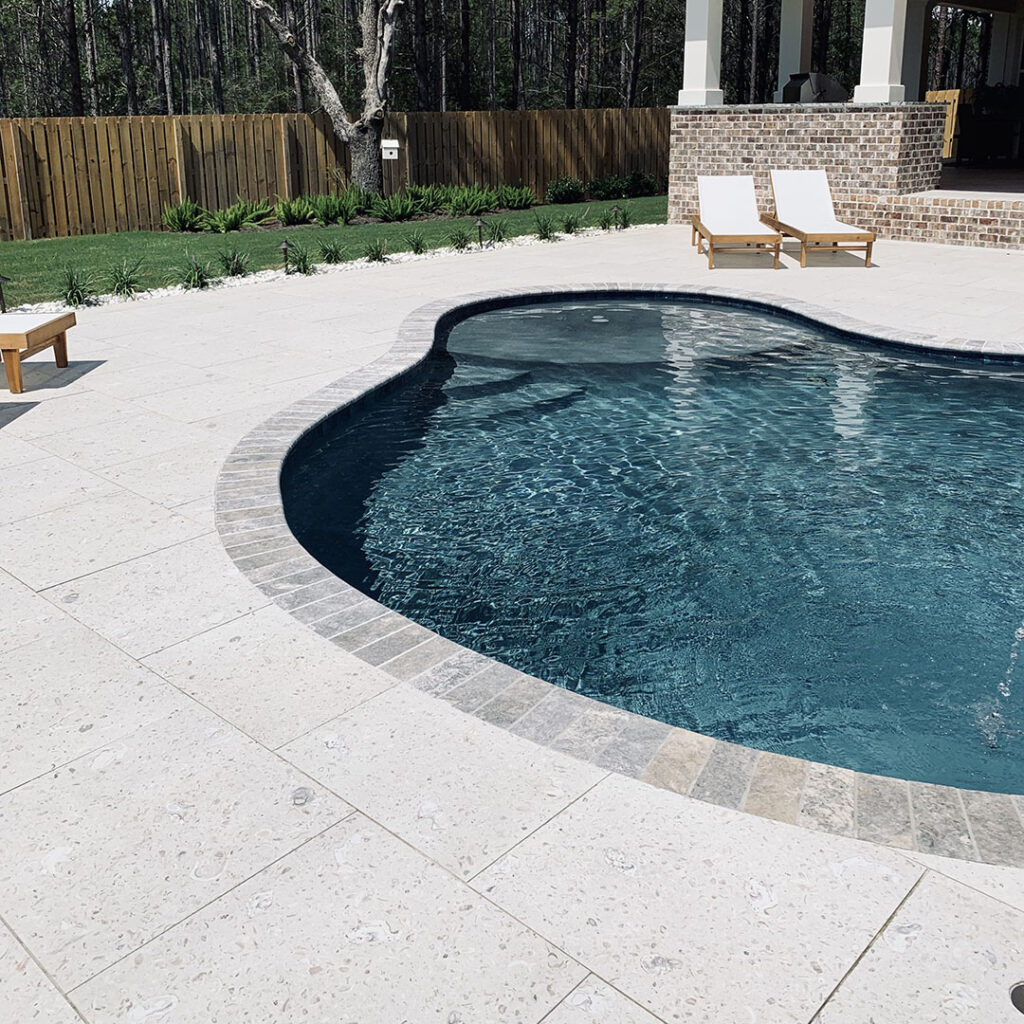
Installation of Porcelain Pavers
Being non-slippery, porcelain pavers are one of your best alternatives on your poolside project. It is also a wonderful investment. With proper care and maintenance, it can last for years and years and add value to your property.
And speaking of property, if yours is around the Sarasota and Manatee region, in Fl, we here at Eagle Pavers would be happy to help you with any paver supply you might need.
If the idea of acquiring porcelain pavers has caught your attention, give us a call at +1 941-210-4192 or email us at sales@eaglepaver.us.


